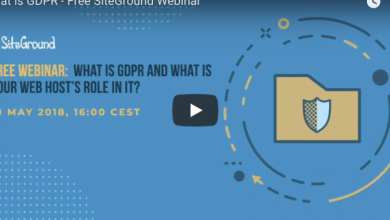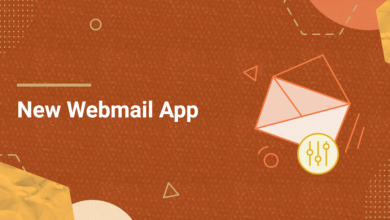Ask the Right Questions Before Diving Into SEO

Ask the Right Questions Before Diving Into SEO
Table of Contents
SEO is an extremely powerful tool for bloggers and website owners. SEO offers a constant stream of inbound marketing activity and qualified leads, it tends to bring in much higher conversion rates, and it lives on for a very long time.
In the following weeks, we will be taking an SEO journey together with Rebecca Gill. We will have a series of articles that will get you thinking about search and teach you how to use these thoughts to improve your website or blog.
In today’s article, Rebecca will share with you the secrets she stumbled upon over a decade ago and the starting point of SEO.
SEO Isn’t Scary
I started my SEO journey over 15 years ago in the ERP industry, and the content I created back then still ranks in Google (and it is still bringing in qualified leads). This is the magic I see SEO delivering, and it is why I’ve never strayed away from it.
No other marketing channel can offer you such focused and long-term delivery of inbound activity.
If SEO is such a great marketing channel, why do so many people ignore it?
I often encounter hesitation because most people simply don’t know where to start. The process of SEO can feel overwhelming, intimidating, and difficult.
I will fully admit that SEO can be scary, but I’ll also loudly state it doesn’t have to be.
There is an easy way to get yourself started with SEO and help ensure you are positioning yourself for success.
Ask the Right Questions
If you are already asking yourself “How do I learn SEO?”, an excellent starting point is figuring out who you are and clarifying who you serve. That may seem like I’m selling the complexity of SEO short, but I’m not.
In reality, asking questions is a critical step that most business owners and bloggers tend to skip. And because they skip it, they set themselves up for failure.
When I perform SEO workshops or create beginner’s SEO guides, I always discuss website personas (also called marketing personas) because they build a foundation for everything that follows.
Marketing personas are crucial because:
- Different groups of people have different problems.
- When groups of people have different problems, they also have different needs.
- With different needs, comes different answers or solutions.
- With varied answers, you derive different terms and phrases the group or persona would use to search for their solutions.
- By viewing different groups and creating seed keyword lists for each group, you exponentially expand your keyword universe and opportunities to rank in search.
If you don’t know who you are and who you serve, you can’t begin to understand what your customer needs and how you can help them. This lack of information makes it impossible for you to create a successful SEO strategy and plan for execution.
By asking questions, we are creating a set of variables we can use to research, analyze, and take action. The answers to our questions will start to formulate our target audience, and they will help us know what matters to them. More importantly, it allows us to focus in on their problems, solutions they seek, and how we can provide answers.
The core of SEO is a blend of questions and answers. People visit search engines (like Google and Bing) to find answers to their questions. That’s it.
The search engines’ job is to locate the best answer to a given question. When you properly perform SEO, you are creating a roadmap to help search engines locate your content and match it up to a given question.
No voodoo, no magic. Just plain and simple questions and answers.
The one thing you can do to help you succeed in SEO is to start to think about who you serve, what questions they ask, and how you can help answer those questions.
Formulating SEO Strategies with Consumer Psychology
In college, I loved psychology. Back then, my dream job would have been closely related to psychology. I found it fascinating to learn about people and what makes them tick.
What I didn’t know was this love of psychology was going to serve me well in optimizing websites and blogs. Marketing is intertwined with psychology.
At the core of this connection is Maslow’s Hierarchy of Needs. This motivational theory is a model of five levels that represent what drives a human’s actions. It boils down to the fact that we all have varying degrees of needs to break down into physiological, safety, love and belonging, esteem, and self-actualization. These needs influence our behavior, and they influence the way we interact with the world around us.
This closely ties to SEO because people search based on their needs at a given point in time. This varies by where they are located within their information journey or their location within a buying cycle. Some searches will be basic, while others will be more advanced. Some will be at the beginning of a process and others at the end. Some may be informational, and some may be transactional.
Bain and Company created a B2B version called The B2B Elements of Value. It translates Maslow’s core ideas into modern-day marketing for B2B companies.
The key for both B2C and B2B marketers is to find the intersection of your target market and what you offer. Knowing where you land on their Hierarchy of Needs is crucial.
Don’t be scared off by all my psychology talk. Let me translate this into a set of fundamental questions that will help you better formulate who you serve and how you help them.
Determine Your Goals
Let’s start your SEO journey by asking the following questions and documenting your answers. Keep in mind these could be related to you, your company, or your product or service.
- What are your areas of expertise?
- What are some of your greatest skills?
- What are you passionate about?
- Is there a particular niche that is more important to you than others?
- What benefits do you offer your customers?
- What differentiates you from your competitors?
- When you’ve been successful in the past, why did your customers choose your service or buy your products? What did they say?
- When you think back to your existing client testimonials or online reviews, what did your customers say about you and your offerings?
- At the end of the day, what business accomplishments are you most proud of?
- How you typically describe your business to a potential customer?
Write this down. Write all of it down! Let your mind run free, but document the path it runs down.
Now I’d like you to take a step back and look at your answer with fresh eyes. I’d like you to replace any buzzwords or industry jargon that “normal” people wouldn’t understand. By normal, I mean people outside of your head, your company, or experts in your industry.
Now, I’d like you to rework your answer and write it as if you are explaining this to your Grandmother or a young child. By doing so, you’re removing the industry jargon, and closing in on what terms normal people might use when searching.
What I am asking you to do is to brainstorm who you are, who you serve, and how you help them. Once we know this, we can start to think about building a keyword universe and formulating a plan for content creation.
Additional SEO Questions
Now that we’ve done some initial investigation let’s explore what groups we might have for our target market. Again, these groups are called website personas or marketing personas.
To do this, we have more questions.
Who Do You Serve?
- Are they men or women?
- Are they kids, teens, adults, or baby boomers?
- Are they consumers or businesses?
- Are they universities, enterprise-level companies, or small business?
- Are they beginners or advanced?
- Do they exist in certain departments like IT, accounting, or manufacturing?
- Do they have different positions like entry-level, manager, or c-level executive?
- Do they speak different languages?
- Do they live in different regions?
- Do they have different budgets and desired price points for goods and services?
How Might You Group Them?
- Age or gender
- Income level
- Geography
- Professional position, occupation, or department
- Industry
- Business size
- Stage in the buying cycle
- Product or service type
- Budget
- Customer status – prospect, new customer, repeat customer
Virtually every website or blog has some form of groups within their target market. No matter what industry I’ve worked in or clients I’ve helped, I can always find website personas.
Sometimes there may only be two and sometimes they might be ten. Dig in so you know exactly who you serve and how you would group them.
Website Persona Criteria
Once you have your groups defined, we want to document more about them. My personal list for documenting website personas includes:
- Name
- Description
- Drivers, goals, and/or objectives
- Frustrations, challenges and pain points
- Needs
- Decision process and criteria
- Stage of the buying cycle (awareness, consideration, decision)
- Level of search intent (navigational, informational, commercial, transactional)
- Purchase obstacles
- Marketing channels where they spend time
Don’t let any of this be intimidating. You’ll most likely know some of the answers and not others. That’s okay! Work with the information you know now, and when time allows, fill in the rest.
The important thing is I’m moving you from thinking about you and what you do to thinking about your target market and what they need.
This will help you develop a keyword list that you can use for SEO purposes.
The Human Element of SEO
Throughout my training and talks, I hold one common theme that I desperately want to drive home to everyone I speak with about SEO.
The best SEO is human-based SEO.
High performing SEO isn’t about marketing automation, easy shortcuts, WordPress plugins, or even outsourcing SEO services to a third-party consultant.
There is no easy button, software product, or expert waiting to do all of this for you.
Low-cost SEO services at $6.99 a month won’t deliver the human element and they don’t work. Software products that state they will automatically optimize content for you based on algorithms won’t work either. It’s binary code and it cannot understand your target market, how you help them, and how you are uniquely positioned to provide a solution.
The best SEO is about understanding your website visitor, connecting with them on a personal level, and helping them solve problems.
No one is in a better position to do that than you! And it makes you super powerful.
The Next Steps for Your SEO Journey
Today’s article covered a lot of ground, and I hope it has you thinking. Keep thinking!
Let your mind wander today and all this week. Think about you, who you serve, and how you help them. Think about what makes you unique and why you are the perfect answer for your target market.
Document your thoughts. Keep a running list of anything that creeps up while you allow yourself time to think and brainstorm.
In my next post, I’ll show you how to dig into website data and Google’s Search Engine Results Page (SERPs) to research possible keywords and phrases. Once we have our possible keyword universe, we’ll move onto keyword evaluation and selection. Finally, we’ll move into mapping your preferred keywords to current and future content.
SEO is a journey, not a destination. My goal is to show you the path and get you started on your journey. Together we can get you and your website ranking and bringing in the right traffic.


